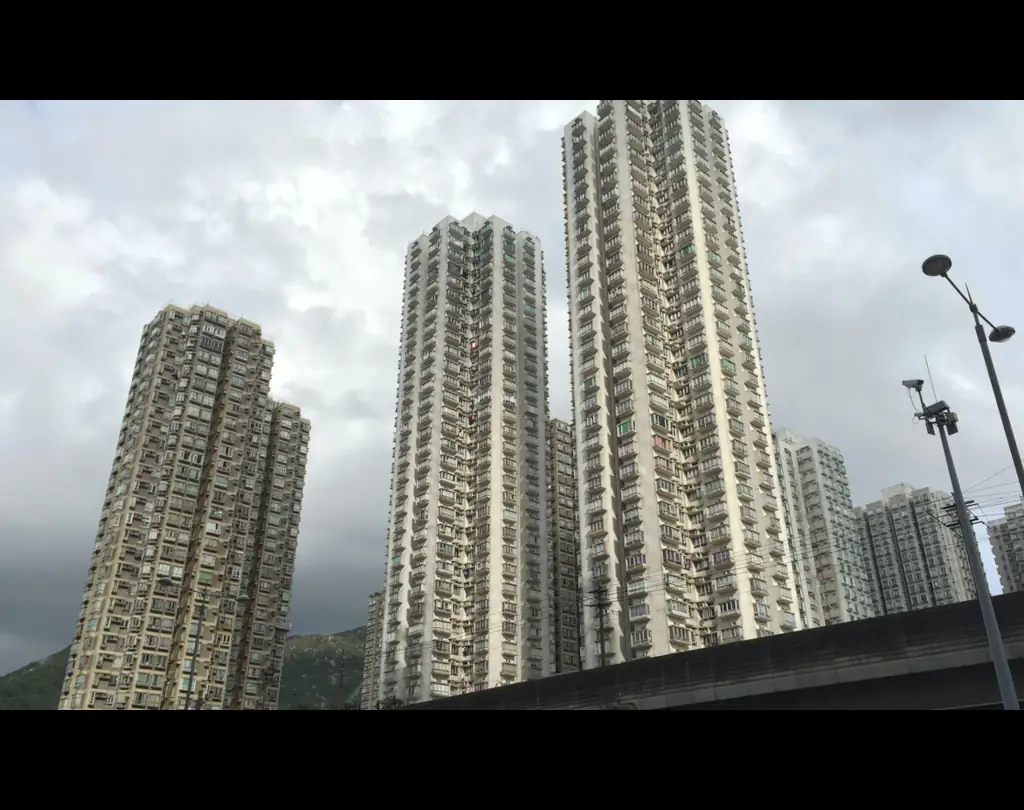Table of Contents
1. Introduction: The Peculiarities of Hong Kong’s Property Market
1. The symbolic meaning of “buildings” in Hong Kong
As one of the cities with the highest housing prices in the world, real estate in Hong Kong is not only a residential need, but also a core symbol of social status, wealth and success. According to international surveys, Hong Kong has topped the list of "house price to income ratio" for many years in a row, and an average family needs to go without food or drink for more than 20 years before they can afford a home. In this extreme environment, "owning a house" becomes a key threshold for crossing classes.
2. Distortion of social values
The idea that "having a house brings happiness, while not having one brings misery" is deeply rooted. The media and film and television works (such as the TVB drama "House Slaves") reinforce the narrative that "buying a house = winning in life", resulting in real estate becoming the primary criterion for measuring personal value.
2. Economic Structure and Class Solidification
1. Wealth distribution under industrial homogenization
Hong Kong's economy is highly dependent on finance and real estate, traditional industries are declining, and opportunities for upward mobility for young people are scarce. According to government statistics, Hong Kong's Gini coefficient reached 0.539 in 2023 (0 means complete equality), and the gap between the rich and the poor is the largest in Asia. In this context, real estate becomes one of the few assets that can "maintain and increase value", and owners naturally develop a sense of superiority.
2. Real estate as a wealth game
Hong Kong implements a linked exchange rate system, and the low interest rate environment and insufficient land supply have pushed up housing prices. The net worth of early homebuyers skyrocketed due to the appreciation of their assets, creating a conflict between the "haves" and the "have-nots." For example, between 1997 and 2023, the average house price in Hong Kong Island increased by more than 400%, far exceeding the wage growth (only about 60% during the same period).
3. Social Culture and Identity
1. Self-reinforcement of the “successful” label
In the highly competitive society of Hong Kong, buying a home is seen as the ultimate proof of one's ability (such as savings and investment vision). Homeowners often show off their properties through social media, and even develop a "property deed culture" (displaying property certificates) to consolidate their social status.
2. Family pressure and intergenerational responsibility
In traditional concepts, "starting a family and building a career" requires buying a property as a prerequisite. Parents often use their life savings to help their children with down payments. Homebuyers bear the family's expectations and tend to feel a sense of "relief" after achieving their goals, which in turn leads to a conceited attitude.
4. Psychological Mechanism: From Anxiety to Superiority
1. The psychological effect of scarcity
The scarcity of real estate (only 7% of land in Hong Kong is used for residential purposes) exacerbates the sense of superiority of “owners”. The "endowment effect" in behavioral economics shows that people overvalue what they already own, and owners tend to overestimate their own achievements.
2. Social Comparison Theory
According to Festinger's theory, Hong Kong people establish their self-worth by comparing themselves with others (e.g. living area, location). Homebuyers use this opportunity to demonstrate their superior status of "surpassing their peers" and even belittle tenants or public housing residents.

5. Institutional Dilemma and Collective Anxiety
1. The double-edged sword of public housing policy
The waiting time for public housing in Hong Kong is as long as 6 years, forming a class division of "public housing vs. private housing". Private housing owners often compare themselves with public housing residents, reinforcing the superior narrative of “self-reliance” while ignoring structural injustices (such as property hegemony).
2. The dependence of education and career
High housing prices force young people to plan their lives around “saving for a down payment” and give up opportunities to start a business or further their studies. Successful homebuyers see this as "sacrifice for achievement" and lack empathy for those who have not.
VI. Critical reflection: the cultural crisis behind arrogance
1. Materialism erodes relationships
A study by the Chinese University of Hong Kong pointed out that in a society that places too much emphasis on material things, interpersonal trust declines. The arrogant attitude of home buyers reflects the distortion of social values and exacerbates class conflicts.
2. Youth despair and social division
The housing gap is creating a generational divide. The younger generation sees the sense of superiority of “home owners” as the arrogance of vested interests, further exacerbating social contradictions (such as the anti-property hegemony demands in the 2019 movement).
7. Conclusion: Beyond the myth of “owning a building is everything”
The arrogance of Hong Kong people after buying houses is actually the product of economic deformity, cultural anxiety and institutional defects. To resolve this phenomenon, reforms are needed at multiple levels, including land policies, wealth distribution, and the reshaping of values. Only by getting rid of the "building slave" mentality can Hong Kong society rebuild a diversified definition of success.
Further reading:




